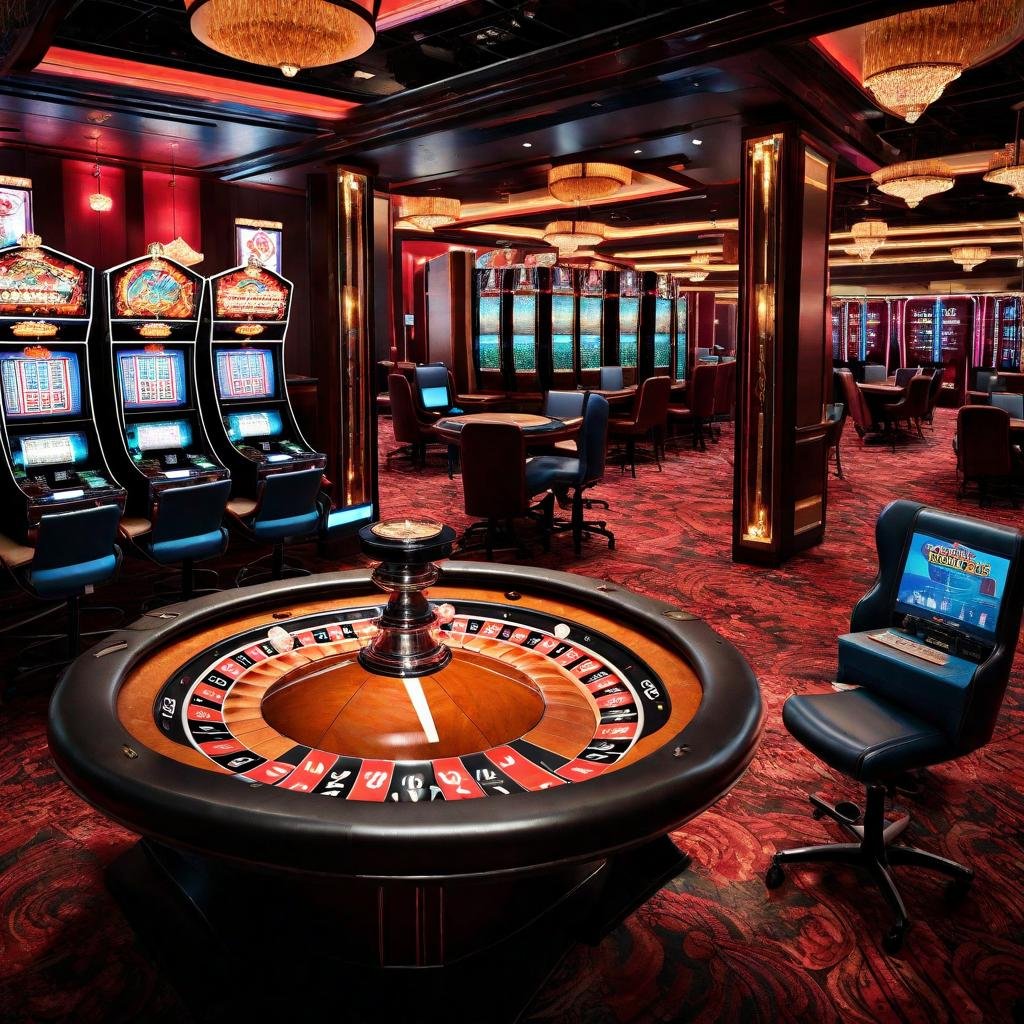Gambling in casinos has long been a topic of fascination and controversy, attracting millions of players globally. With a mix of chance, strategy, and the thrill of uncertainty, casino games offer an exciting escape from everyday life. However, as entertainment becomes ever more accessible, it invites a deeper examination of the morality surrounding these games.
At the heart of the discussion lies the issue of whether casinos promote responsible gaming or take advantage of vulnerable individuals. The allure of potential winnings versus the truth of losses can create a complex dynamic, and understanding this balance is essential for both players and operators. As we delve into the morals of casino gaming, we will explore the duties of casinos, the effects on society, and the measures that can be taken to foster a better gaming environment. https://789win.dental/
The Impact of Casino Gaming on Society
Gambling in casinos has a considerable influence on societal dynamics, affecting not only the economy but also social behaviors and local frameworks. The funds generated from casinos can lead to job creation and boost local economies, as they provide various employment opportunities in multiple fields including hospitality, entertainment, and retail. However, while the economic advantages can be substantial, communities often grapple with the possible negative impacts that arise from higher gambling activity.
Additionally, the presence of casinos can lead to an rise in gambling addiction, presenting serious challenges for individuals and families. The excitement of casino games can quickly transform into a habitual habit, affecting connections with others and leading to financial instability. Many players may struggle with the loss of control over their gambling behaviors, resulting in a need for assistance programs and interventions to address this increasing issue. The social cost of addiction can ripple through families and neighborhoods, creating an urgent need for sensible gambling approaches.
In addition to the economic and social ramifications, casino gaming often reflects cultural attitudes towards uncertainty and entertainment. It can foster a sense of excitement and leisure, attracting tourists and boosting tourism. However, this allure may also mask the broader implications of gambling as a form of entertainment, raising ethical questions about its advertisement and availability. As communities weigh the benefits and drawbacks of casino gaming, the need for sensible approaches and oversight becomes increasingly critical in ensuring that the beneficial elements are enhanced while minimizing the negative effects.
Moral Concerns in Gambling Practices

The morality of gambling operations often revolve around the risk for dependency and its consequences on people and households. Betting can lead to significant financial distress, impacting not only the betters but also their loved ones. As people become caught in the allure of winning, many lose sight of their budget, which can result in devastating results such as insolvency. This raises ethical questions about the responsibility of gambling establishments in promoting safe gaming habits and providing support for those who may be struggling with gambling addiction. 789win1111
Another major concern is the promotion of gambling to vulnerable populations. Casinos often target low-income people or communities with the offer of quick gains, which can continue patterns of poverty and hopelessness. In this situation, the morality of advertising strategies used by gambling establishments come under examination, as they may exploit the desperation of people seeking an escape from financial hardships. This manipulation raises moral questions about the integrity of the betting industry and its responsibility to safeguard its most vulnerable patrons.
Additionally, the effect of casino gaming on the community as a whole cannot be overlooked. While some argue that casinos create employment and boost local economies, others point to the social costs associated with dysfunctional gambling, increased criminal rates, and a strain on public resources. Balancing economic benefits with the risk for social harm presents a complex moral dilemma for lawmakers and casino operators alike. The difficulty lies in finding a responsible approach that prioritizes the welfare of individuals and society while still allowing for the enjoyment of gambling gaming.
Regulatory Structure and Responsibilities
The oversight framework surrounding casino activities is created to ensure equity, trustworthiness, and participant security. Various government entities and casino commissions create and apply regulations that dictate how gaming operations operate, the criteria for game creation, and the protocols for handling prizes. These regulations vary by locale but commonly involve licensing requirements for providers and strict measures to prevent fraud and dishonesty.
In also to regulatory bodies, gambling establishments bear significant responsibility in preserving moral standards within their facilities. They must enforce responsible player practices that encourage player security and education, including providing self-ban options and offering information about the hazards connected to gambling. Establishments are also accountable for training employees to identify signs of problem betting and understand the proper measures to assist visitors in need.
Additionally, transparency in gambling operations is essential for building and preserving public trust. Gaming establishments should provide clear details about the chances of activities, advertising offers, and any related risks. By creating an culture of transparency and accountability, casinos can help reduce the likelihood adverse impact of betting while improving the general gambling experience for all participants.